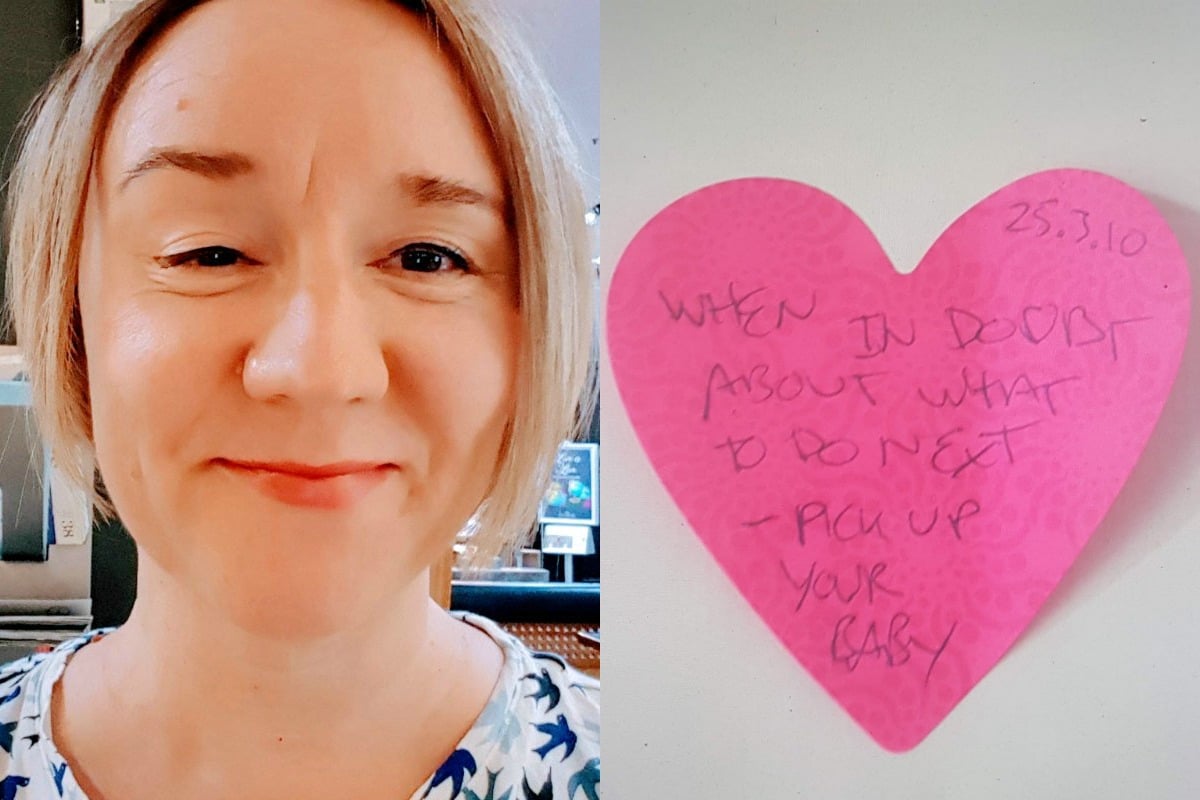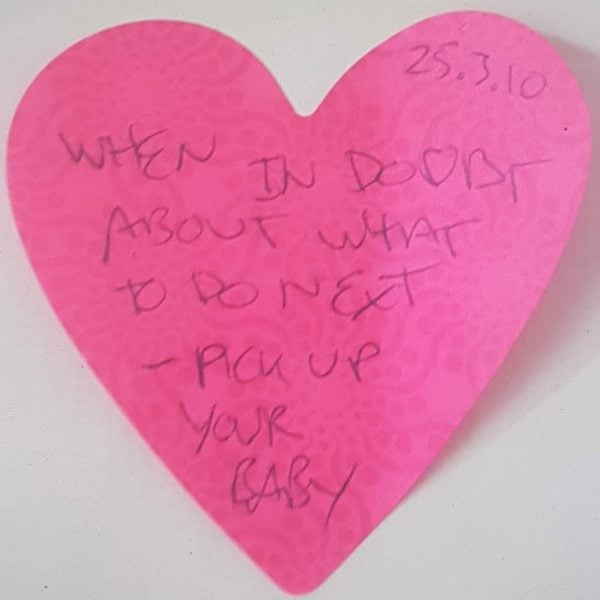
Warning: This post deals with mental health and might be triggering for some readers.
I would never have believed a pink, heart shaped post it note could signal such distress.
‘When in doubt about what to do next – pick up your baby.’
That is one of hundreds of bright post it messages forming a technicolour carpet over the walls, my bedside table, my computer, any surface of my hospital room that will hold them.

These notes are a visual representation of the inside of my head during a manic episode. Swirling, heaving thoughts scribbled down so quickly they are sometimes illegible because they will evaporate as quickly as they come. They all feel important as I write them.




























































































